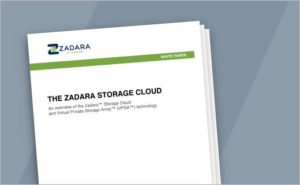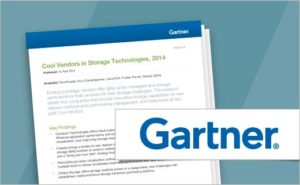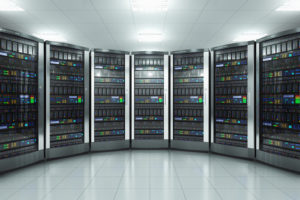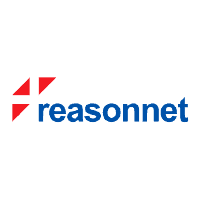
Enterprise Storage: A New Approach (OpEx Storage in Public and Private Clouds)
Traditional (CapEx) storage is slowly becoming a thing of the past and is being replaced with a newer, more flexible solution; OpEx storage in public and private clouds

Traditional (CapEx) storage is slowly becoming a thing of the past and is being replaced with a newer, more flexible solution; OpEx storage in public and private clouds

IT managers face roadblocks every day. Many of these are due to ever-changing industry. From making sure you have enough storage capacity, to managing IT budgets — there is always something. It’s enough to keep you so busy that even if you just blink, you might miss the next best thing. And before long, that new shiny thing becomes obsolete.

Most people think As-a-Service (aaS) is focused on cloud only, but it isn’t. There are on-premises storage solutions sold aaS – as well as cloud products. Many people also believe that the primary advantage of aaS or cloud-based services is the cost savings. While there is a significant cost benefit, that is far from being the only (or perhaps even the most compelling) reason to consider aaS. The simplicity and efficiency of the ‘as-a-service’ model is unlike anything we’ve seen in the industry thus far. Here are many of the key advantages that make Storage as a Service (STaaS) a winning solution.

If there’s one technology that has taken the storage world by storm over recent years, it’s flash drives. Solid State Disks (or SSDs) have transformed the storage landscape, offering much higher I/O density (IOPS per TB of storage) than can be achieved with traditional hard drives. HDDs are obviously mechanical media, based on spinning platters, accessed by multiple read/write heads. The physical geometry of these devices means that they are more attuned to sequential than random workloads. It’s easy, for example to write data sequentially onto a disk track as the disk rotates past the head. What’s much harder for HDDs is to manage random I/O profiles that read data from physically disjoint parts of the drive, either on separate tracks or platters. Totally random read requests can slow a hard drive down to 120-200 IOPS, depending on the drive speed.

On June 7th, Zadara announced our launch of the “Zadara Cube”, now available via AWS 1-Click.

In an age where confusing and confounding terms like “hyperconvergence”, “hyperscale” and “disaggregation” get tossed around (even though hardly anybody actually understands what these mean), you may start to wonder what was really wrong with traditional storage in the first place. Is software-defined infrastructure, flash storage and cloud really necessary? The answer is a resounding “yes”. While the differences in storage options today and those available five or ten years ago are truly staggering, the improvements are just as significant. There are many problems with traditional methods of data storage, but let’s look at a few key issues:

Traditional storage has ruled the data center for over three decades. This has historically come with large CapEx expenditures, usually meaning you initially purchase more storage than you need so that you aren’t faced with another data center upgrade in a couple of years. But the traditional storage model isn’t working anymore. Like Uber has upended the taxi cab industry; smartphones have stumped the sales of products like alarm clocks and cameras; and music streaming services have revolutionized the music industry — universal storage is turning traditional storage on its head. Here’s why.

As cloud-based storage, computing, applications, and other products became mainstream, most cloud vendors foresaw a vast migration of enterprise storage and other IT needs moving from on-premise solutions to cloud-based solutions. This has happened, but not quite the way cloud service providers predicted. Enterprises (and, indeed, businesses of most all sizes) have instead opted for the hybrid cloud — a blend of cloud-based storage and on-premise solutions that allows the business to carefully manage what data stays in house and what gets migrated offsite. Most enterprise “cloud” storage infrastructures are actually hybrid clouds. So, what are the best practices for managing your hybrid cloud environment? We break it down here to assure that your hybrid cloud solution is working optimally for your enterprise.

Whether you’re shopping around for your first cloud storage service or are looking to replace your existing cloud vendor, there are some important questions you need to get answered before making a commitment. Don’t sign on the dotted line until you know the answers to these critical questions. Here are 5 questions to ask your cloud storage provider.
